RTP Scholarship: Australian Government Research Training Program
Introduction
The Commonwealth Government’s Research Training Program (RTP) (effective from 1 January 2017) provides funding to universities to support the research training of both domestic and international postgraduate researchers (HDRs). Funding through the RTP enables universities to administer and award Australian Government Research Training Program (RTP) Scholarships. These awards are governed by the Commonwealth Scholarship Guidelines (Research) 2017 and replace support provided by the Australian Postgraduate Award (APA) (see section 21 of these terms and conditions regarding the continuation of applicants previously supported by an Australian Postgraduate Award).
Griffith University gives out RTP Stipends to applicants with exceptional research potential who are either starting or enrolled in HDR programs that offer RTP support. RTP stipends cover candidates’ general living expenses, but program tuition is not covered.
Eligibility Requirements- RTP Scholarship
An applicant must meet the following requirements:
1-Be beginning or enrolled in Griffith University’s HDR program, which receives RTP support.
2- Not receiving a benefit greater than 75% of the RTP Stipend rate to support the candidate’s general living expenses to participate in the proposed program. It is inappropriate to consider income received for the candidate’s HDR program but not to support general living expenses.
Selection Process- RTP Scholarship
The process of awarding the Research Training Program (RTP) Scholarship is meticulous and strategic, designed to ensure that the most deserving and promising candidates are selected. Below is an expanded explanation of the selection process:
- Alignment with University Priorities:
- The University sets strategic priorities that guide its overall mission and vision. When considering applicants for the RTP Scholarship, these strategic priorities play a pivotal role. Candidates whose research aligns closely with these priorities may receive preference during selection.
- Academic Merit:
- One of the primary criteria for selection is the applicant’s academic excellence. This involves evaluating the candidate’s previous academic achievements, including grades, courses undertaken, honors, and relevant accolades or recognitions.
- Transcripts, academic references, and other pertinent documentation may be reviewed to ascertain the academic caliber of the applicant.
- Research Potential:
- Beyond past achievements, the scholarship committee assesses the research potential of the candidates. This entails evaluating the proposed research project’s feasibility, innovation, and impact.
- Candidates must often submit a detailed research proposal outlining their intended research objectives, methodology, expected outcomes, and potential contributions to their field of study.
- The committee may also consider the applicant’s prior research experience, publications, presentations, or any other evidence showcasing their aptitude for conducting high-quality research.
- Quality of the Research Training Environment:
- The environment in which a research project is conducted significantly influences its success and impact. Hence, the quality of the research training environment is a critical factor in the selection process.
- Factors considered under this criterion might include the facilities and resources available to support the research, the expertise and mentorship provided by supervisors or research teams, collaboration opportunities, and the overall institutional support for research activities.
- Policy Guidelines:
- To ensure transparency and fairness, the Higher Degree Research Scholarship Policy’s Sections 5 and 6 provide comprehensive guidelines outlining the selection procedure and criteria.
- These policy sections offer a structured framework that ensures consistent evaluation of all applicants, safeguarding against biases and ensuring that the selection process adheres to established standards of excellence and integrity.
In summary, the selection process for the RTP Scholarship is multifaceted, encompassing academic merit, research potential, alignment with university priorities, and the quality of the research training environment. By meticulously evaluating candidates against these criteria and adhering to established policy guidelines, the university aims to identify and support the most promising researchers capable of making significant contributions to their respective fields.
Stipend and Allowances
- The annual stipend for a full-time RTP Stipend Scholarship is $32,192 (2023 rate). The Higher Education Support Act of 2003’s Parts 5 through 6 outlines how the stipend rate for any given year may be the same as for the previous year.
- RTP Stipends may be offered at a rate higher than Section 4(1) at the University’s discretion and in accordance with its strategic priorities. In accordance with Sections 5 and 6 of the Higher Degree Research Scholarship Policy, a competitive selection process will be used to determine who will receive RTP Stipends at a higher rate.
- A candidate receiving a scholarship and pursuing a full-time education at a university may be eligible for tax exemption. The scholarship holder is responsible for determining their scholarship’s tax liability.
- A credit union, building society, or bank account will receive the RTP Stipend every two weeks. Except in cases where an awardee is already enrolled in the program, payment may begin on the date that the award was announced, payment will be made on the date that the study begins.
Relocation Allowance
1-On providing receipts to the GGRS, verifying the costs of this travel, an awardee who moves between Australian cities or travels from overseas specifically to accept the award is eligible to receive a maximum of $515 for each eligible adult and $255 for each eligible child, up to an absolute maximum of $1,485:
a-Travel costs equal to the economy or student airfare for the candidate, their spouse, and any dependents traveling the shortest distance to Brisbane or the Gold Coast. A per-kilometer allowance equal to the candidate’s equivalent airfare will be calculated if a candidate travels by car. Candidates who choose to travel by car cannot claim lodging or meal expenses.
b. Removal expenses: Relocation allowance must be claimed within six months of award start. Travel undertaken after the award or studies have ended does not qualify for relocation assistance.
Commencement of Study
By the date specified in the offer letter, award recipients must accept the RTP Stipend Scholarship and a place in the HDR program. The RTP Stipend Scholarship must be accepted between the offer letter’s specified dates. An awardee may request a delayed commencement if exceptional circumstances prevent them from accepting the award by the offer letter’s deadline. The reasons behind the request will need to be fully explained. The University has the right to revoke the award if the recipient cannot begin their work on time.
Transfer of Award between Institutions- RTP Scholarship
Awardees can ask for their RTP Stipend Scholarship to be transferred between higher education providers. Awardees who transfer to a different institution cannot keep their RTP stipend unless the new institution agrees to it and has enough RTP funding. Sections 5, 6, and 11 of the Higher Degree Research Scholarship Policy describe how scholarships are chosen for transfers to Griffith University.
Changes to HDR Program- RTP Scholarship
1- If you are transferring from a Masters (Research) program to a Doctoral program or from a Doctoral program to a Masters (Research) program, the amount of time you will have to spend in your new program will be based on how long your original program was.
2- If you have already been studying for some time towards a previous program, the maximum tenure for your transferred award will be the new HDR program minus the time you have already studied.
3-If you want to make a large change to your thesis topic, you’ll first need to get the approval of your principal supervisor and Dean of Research. If it’s been determined through this process that your research field or teaching field has changed, your Griffith Graduate Research School will update your record accordingly.
Application process- RTP Scholarship
HEPs handle the selection and application procedures for RTP Scholarships. To learn more about the application process, prospective candidates must speak directly with the postgraduate research office at their chosen HEP. The list of eligible HEPs is available in Tables A and B of HESA.
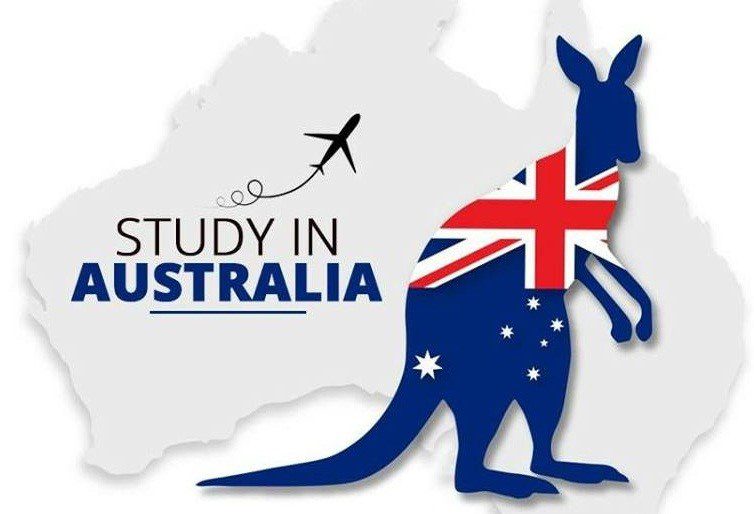
HDR grievance factsheet
The HDR Grievance Factsheet informs HDR students—including those who have received RTP Scholarships—about the various channels they can use to file a grievance regarding internal problems with their HEP.
Contact
For more information, refer to the Frequently Asked Questions for students indicated below or email RBGrants@education.gov.au with “RTP” as the subject line.
Frequently Asked Questions-RTP Scholarship
The RTP is a single, flexible funding source for domestic and international students pursuing Research Master’s and Doctoral degrees.
The RTP replaced the Research Training Scheme, Australian Postgraduate Awards, and International Postgraduate Research Scholarships as of January 1, 2017.
A university may only offer an RTP Scholarship recipient one or more of the aforementioned forms of assistance:
-A higher degree by research (HDR) student’s tuition fees that they would have otherwise had to pay themselves are covered by an RTP Fees Offset. This calls for a university to defray any applicable student tuition fees fully. This is not an allowance.
-A RTP Stipend that helps students with living expenses while they pursue a higher degree through research.
-RTP Allowances help students with the extra expenses associated with a higher degree by research (HDR). This covers moving costs when pursuing an HDR, printing an HDR thesis for academic publication, and health insurance for recipients and their dependents.
Contact a participating university directly to apply for a new RTP stipend, allowance, or fee offset. The management of the RTP application, selection, and offer processes is the responsibility of the universities. For instructions on applying for the RTP and information on important deadlines, students should contact the scholarship office at their prospective university.
The requirement that the Commonwealth’s contribution is acknowledged in research publications by RTP students where related to a research project is outlined in Section 1.6.55 of the RTP Guidelines.
The student’s support via an “Australian Government Research Training Program Scholarship” must be acknowledged.
“This research is supported by an Australian Government Research Training Program (RTP) Scholarship” is an example of an acknowledgment statement.
Please be aware that the percentage of RTP funding that can be used to support international students is capped at 10%.
Please be aware that universities are in charge of the application and selection procedures for RTP Scholarships, so you must speak with the postgraduate research office of your preferred university directly to learn more about how to apply.
No, a student must pursue a higher degree by research (research master’s or research doctorate), with at least two-thirds of their time spent on research at an accredited university, to be eligible for an RTP place.
Research-based degrees do not include coursework degrees.
A student is not prohibited from applying for an RTP spot at the same university more than once or at multiple universities.
No limitations exist that would prevent someone without First Class Honours from receiving assistance from the RTP.
A university may use previous coursework, relevant work experience, research publications, referee reports, and other research experience to determine its selection process. Ultimately, the university decides how to handle the RTP application, selection, and offer processes.
No restrictions would bar someone from receiving support from the RTP if they have already earned a higher degree through research. A university may use previous academic experience as a deciding factor in its selection process. In the end, the university decides how to handle the RTP application, selection, and offer processes.
Those who have previously benefited from RTP assistance are not barred.
A university may use previous academic experience as a deciding factor in its selection process. Ultimately, the university decides how to handle the RTP application, selection, and offer processes.
Universities must have clauses stating the conditions under which they will permit a student receiving an RTP Scholarship to work on projects unrelated to their higher degree by research (HDR) subject.
Before beginning work outside of the RTP, students should review the university’s RTP Scholarship policies and request university approval.
Yes. Block grants from the RTP are given to universities to help pay for the research training of domestic and international students pursuing higher degrees through research.
Yes. Recreational, sick, and parental leave entitlements are all included.
Specific university policies may apply to applying for leave entitlements, particularly for part-time students. The university must also approve any time off. Students should contact the university’s research office for information on the terms and how to request a leave of absence.
No, you must apply for the RTP directly through a participating university.
There are no limitations that would prevent someone from receiving support from the RTP if they have previously earned a higher degree through research at a foreign university.
The university is ultimately responsible for the RTP application, selection, and offer processes.
Since they are not “receiving financial assistance directly from the Commonwealth,” as required by subparagraph 85(BB)(1)(d) of the Family Assistance Legislation Amendment (Jobs for Families Child Care Package Act 2017), which went into effect on July 1, 2018, students supported by the RTP scheme are not automatically eligible for the Child Care Benefit.
Even if they are not eligible for RTP Scholarships, students may still be able to receive Child Care Benefits. Students enrolled in the RTP should get in touch with Services Australia so that they can find out if they qualify for the Child Care Benefit program.
Yes, students must submit a direct application to their school.
On the RTP main page, you can find more details about RTP eligibility requirements and conditions.
Each university can choose the length of an RTP scholarship extension, with a maximum of six months being applicable.

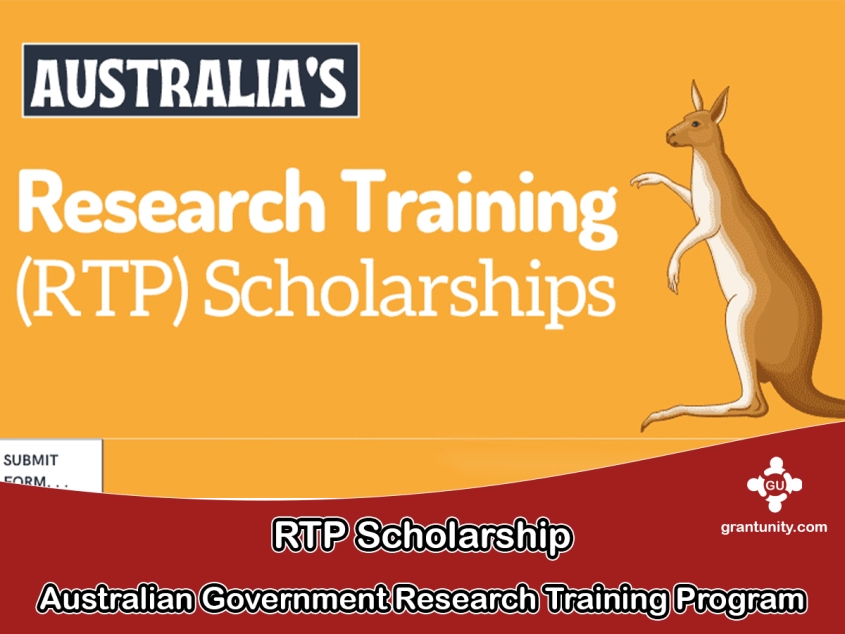

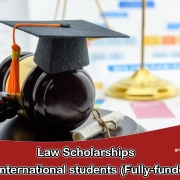

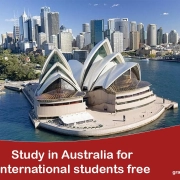

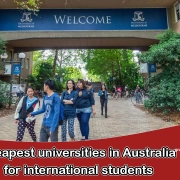
Leave a Reply
Want to join the discussion?Feel free to contribute!